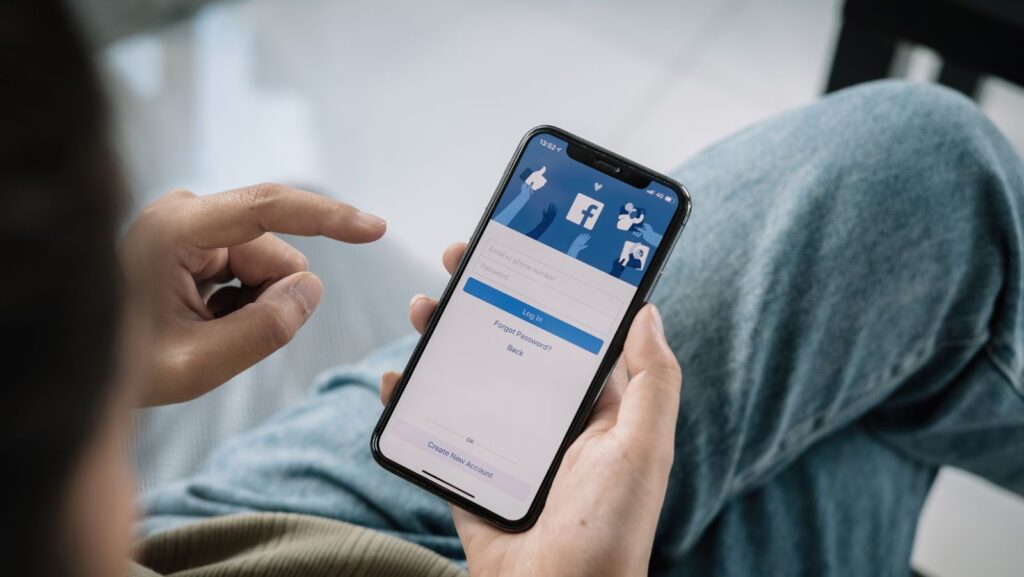Facebook recently created a special oversight board that can overrule even their CEO, Mark Zuckerberg, on their content policies. This board consists of experts from various fields and can provide an impartial view on decisions regarding Facebook’s content moderation practices. In addition, this board aims to maintain the platform’s integrity and uphold the company’s community standards.
Let’s take a closer look at this board and how it functions:
Facebook Created a Board That Can Overrule Even Mark Zuckerberg
Facebook’s mission is to give people the power to build community and bring the world closer together. Founded in 2004 by Mark Zuckerberg and his Harvard roommates, Facebook has become the world’s largest social networking service. It has more than 2 billion monthly active users, with users’ share of time online increasing every year.
At Facebook we believe that everyone should have a voice; that people have the right to express their point of view and be heard. However, we also value safety and respect for others – free expression doesn’t mean free access to harm or harass others. This is where content moderation comes in, as it attempts to balance these two values: protecting freedom of expression while keeping people safe from harmful or inappropriate content on our platform.
We understand the deep impact decisions about online speech have on individuals and societies worldwide. Therefore, we have committed ourselves to implementing a design for content review that maximises people’s rights to freedom of expression, promotes responsible behaviour online, provides certainty around enforcement decisions and allows individuals affected by our actions an accessible path for appeal – through the Facebook Oversight Board (FBO). The FBO was created in 2019 with a charter that equips it with powers to act as an independent oversight body for Facebook’s policies on reviewing online speech. This means it can review appeals from users who posted content and those impacted by it when they felt their rights had been violated.

In addition, before any decision made by FBO will be put into effect all members must reach unanimous consensus for its decisions regarding specific cases be binding on Facebook – meaning that even if one member cannot come to an agreement with others then this decision will not be imposed on the company’s policy enforcement practice.
What is the Facebook Oversight Board?
The Facebook Oversight Board is an independent body set up by Facebook to explore complicated content decisions and provide independent, expert review of those decisions. In addition to reviewing certain content decisions, the Oversight Board can also consider public policy questions and make policy recommendations.
The board is a multinational group of experts with backgrounds in philosophy, journalism, law, public safety and human rights. Members are nominated by Facebook and then selected based on their expertise in international human rights standards, online harms and data ethics. The group’s composition reflects various backgrounds that are underrepresented in tech – including gender identity, race, religion and national origin – to represent the diversity of the Facebook community worldwide.
The aim is for the board’s judgments to be independent from Facebook’s interests – based solely on cross-cultural knowledge of global norms for expression – with users worldwide having access to it. This means taking into account users’ rights to freedom of expression alongside their need for safety from harm on the platform. It also means considering regional laws while determining how they apply universally to all communities worldwide that use Facebook products.
The Board’s Purpose
In an unprecedented move, Facebook has recently created a board that can overrule even Mark Zuckerberg in certain situations. The Facebook Oversight Board was created to provide independent and impartial decision-making on difficult content moderation questions. It is a group of experts and influential public figures that will be responsible for ensuring Facebook’s content moderation practices are consistent across regions, and that users have a way to appeal content moderation decisions. In addition, the board will have the power to make binding and enforceable decisions, and the ability to review any content moderation decisions made by Facebook and its partners.
Let’s explore further the purpose of this board:
What Types of Content Decisions will The Board Review?
The Board is authorised to review certain types of content decisions made by Facebook, under its published terms of service or other applicable operational guidelines. These may include content moderation decisions (for example, reviews related to whether or not something is allowed on the platform); appeals of such decisions; and/or policy cases (for example, requests for clarification about how a policy should be interpreted and enforced).
Content moderation cases involve appeals from Facebook’s removal of posts or accounts based on violating their community standards or other operational guidelines. The Board can reverse Facebook’s decision to remove posts or entire accounts. Policy cases refer to requests for clarification about how a specific policy should be interpreted and enforced to ensure Facebook’s policies are applied consistently and fairly across all parts of the world.
When hearing these types of cases, the Board is guided by principles set forth within the Charter including freedom of expression & human rights; procedural fairness & transparency; cultural & religious diversity; public safety & security; equity & privacy; preservation & progress; respect for public conversation & representation. In addition, the Board works with stakeholders – NGOs, academics, subject matter experts – which help inform their decision-making process when interpreting policies and determining whether they have been correctly applied in individual cases.
What Types of Content Decisions Will The Board Not Review?
The Facebook Oversight Board will not review content decisions that are solely related to the enforcement of local or national laws, or the safety and personal integrity of individuals, from impersonation to intentional online harassment. The Board will only consider appeals of content decisions related to Facebook’s Community Standards, which are enforced across both Facebook and Instagram.
Additionally, the Board will not review appeals regarding policy changes or hear questions about civil or criminal legal matters outside its purview. Furthermore, members of the Board cannot escalate issues beyond their independent judgement unless there is an urgent need for review by Facebook.
The Board’s Structure
Facebook recently unveiled the creation of the Facebook Oversight Board, a board of independent experts tasked to review and make binding decisions on the most difficult content moderation decisions worldwide. The board, which can overrule even Facebook CEO Mark Zuckerberg, will be composed of independent members from various backgrounds and expertise.

Let’s delve into the structure of the board and how it will work:
Who is on The Board?
The Facebook Oversight Board is independent of policy and legal experts worldwide. Its mission is to answer tough content-related questions about Facebook, using Facebook’s policies as well as international human rights standards. It is dedicated to upholding these principles and ensuring that users have an impartial and transparent process for challenging decisions related to their content on Facebook.
The Board consists of leading experts in their fields, who bring together a wide range of perspectives from around the world. They include lawyers, policy experts, academic scholars, journalists, human rights activists and those with regional expertise in the Middle East and Europe, South Asia, North America, Latin America and Africa. In addition, each member brings a base of professional expertise on issues related to free expression or privacy applicable to global Internet communities.
The Board members are free of conflicts of interest concerning matters under consideration by the Board and are neither employees nor contractors of Facebook or affiliates thereof. This assures that they can be independent in their decision-making while maintaining a meaningful connection with the company doing business online today: Facebook.
The members elect their first five Co-Chairs from among their ranks during the first meeting when they are officially constituted as the Oversight Board. The Co-Chairs will then rotationally lead meetings for one year apiece over three-year terms that can be renewed twice for a maximum term of nine years each. The Co-Chairs also liaise between the Board and external parties such as press or stakeholders when requested by either party respectively.
How Will the Board Make Decisions?
The Facebook Oversight Board will render decisions that bind Facebook responsibility to take content-moderation related action on particular posts in the first instance. Decisions don’t change Facebook’s Community Standards or the Platform’s overall moderation policies, but they do determine how such policies are applied to particular content.
Decisions by the Board can be arrived at using majority vote subject to certain conditions:
- At least five board members must act for a decision to be formalised and binding;
- They must have concurrent experience and disciplinary backgrounds, i.e., members need not have consensus for a majority vote;
- Five members would conceivably represent five different opinions, which might or might not create controversy.
Overall, all Board decisions must adhere to two standards: consistency with applicable international human rights standards, and taking into consideration applicable laws. In addition, the Board will follow an established process and framework which includes periodic updates and feedback from Facebook users who challenge content moderation actions (referred to as “Case Participants”) as well as the general public.
The Board’s Impact
On May 6th, 2020, Facebook announced the launch of the Facebook Oversight Board, an independent international body that can overrule even Mark Zuckerberg’s decisions on content moderation. This board has the potential to make a huge impact on the content moderation practices on the platform.
In this article, we will be discussing the potential implications the board’s decisions might have:
How Will the Board’s Decisions be Enforced?
The decisions of the Facebook Oversight Board will be binding and can override those of Facebook within the given jurisdiction. Any decision or recommendation agreed to by most board members will be communicated directly to Facebook for implementation.

In addition, once implemented by Facebook, the Enforcement Protocol will require that all decisions of the Board are given due compliance, meaning that any attempted disobedience by Facebook will amount to serious sanctioning on their part. Following this protocol ensures that decisions are enforced beyond just verbal agreements.
Facebook’s role in securing these outcomes will be two-fold;
- firstly they must agree and accept responsibility for implementing the recommendations;
- secondly they must submit quarterly reports detailing how they’ve complied with each decision or recommendation agreed to by a majority of Board members.
How Will the Board’s Decisions Affect Facebook’s Content Moderation Policies?
The Facebook Oversight Board is an independent body whose mission is to make decisions that inform Facebook’s content moderation policies and hold the company accountable for its impact on the international community.
The Board will have the power to independently review, reverse or change Facebook’s content moderation decisions, upholding the site’s standards while protecting users’ rights to expression. Furthermore, all decisions from the Board are binding and cannot be overruled by Facebook or its executives. This means that the Board will have ultimate authority within the platform when it comes to content moderation.
The outcomes of a case before the Board could result in changes at every level of Facebook’s operations, from influencing government policy around digital platforms, to shaping new guidelines for moderators both on-site and off-site, to informally impacting how private companies moderate their platforms. Additionally, if certain cases become precedent-setting judgements board members may limit their decisional power in future cases. The upshot is that no matter what changes come out of any individual decision by this body, those changes will ripple throughout how other companies may moderate content and how we understand rights and restrictions on a global scale moving forward.
Conclusion
Facebook has created a board that can overrule even Mark Zuckerberg’s decisions, the Facebook Oversight Board. This board provides an important layer of checks and balances to Facebook’s content moderation system, allowing for a more independent and transparent approach to content moderation.
In conclusion, the introduction of this board has been a positive step forward in ensuring that Facebook can manage its content moderation system more responsibly and comprehensively.
Summary of The Board’s Purpose and Impact
The Facebook Oversight Board is an independent entity established by Facebook to review the company’s policy and enforcement of content on its platform. It aims to provide an impartial, independent review of certain content decisions. Upon such reviews, the Board will make binding decisions concerning whether or not the content should remain available on Facebook, or whether it should be removed.
The Board comprises leading experts in online safety and security, human rights, technology law, media law and others from around the world.
The Oversight Board is intended to safeguard users’ rights and information by promoting accountability for Facebook’s decisions. For example, it can hear cases about banned content or requests for user data removal from those who no longer use Facebook’s services but want their data removed from its servers. The board may also consider questions regarding how long a piece of content remains published on the platform and any other issues related to user activity moderation decisions. When rendering a decision, the Board considers either an individual case concerned with a particular piece of content or a more general matter related to interpretation and application of company policies. Ultimately, its job is to ensure that difficult decisions made by Facebook are independently reviewed in light of user rights and societal interest.
Implications of The Board’s Decisions for Facebook Users
The decisions rendered by the Facebook Oversight Board are likely to have a far-reaching impact on users. The Board’s decisions may be appealed to Facebook and can then be pushed further. This means that users can rely upon the board’s decisions that would not otherwise have been available for appeal. The board’s decisions will also act as precedents for subsequent cases, providing a basis for future judgments.
Additionally, Facebook has committed to publicising all global standards governing content moderation on its platform, making them part of the Terms of Service and available for all users to review. This transparency will allow users to ensure their posts do not violate standards. It will also make it easier for those considering appeals or filing complaints with the board to assess the potential violations they may have faced previously.
The Oversight Board also provides a platform for discussing issues beyond those directly relevant to their decision-making process, giving users an avenue to present arguments regarding broader topics affecting social media conduct. By participating in these discussions, public members can engage in valuable discourse about how social media sites should be moderated to preserve civil discourse online and generate more values-based guidelines than purely rule-based ones.
tags = facebook ceo mark zuckerberg, facebook oversight board, facebook supreme court, private supreme court, facebook company, facebook nondisclosure agreement, look facebook oversight newyorker, look facebook oversight board newyorker, oversight zuckerbergklonick newyorker, facebook oversight zuckerbergklonick newyorker, facebook oversight board newyorker, look facebook oversight board zuckerbergklonick newyorker, facebook oversight board zuckerbergklonick newyorker, look oversight board newyorker, digital social networks, facebook platform oversight board, facebook community standards


More Stories
All You Need to Know About Responsible Gambling in Online Casino
4 Cornerstones Defining the Number One Crypto Casino in 2023
5 Online Gambling Software Developers Industry Titans